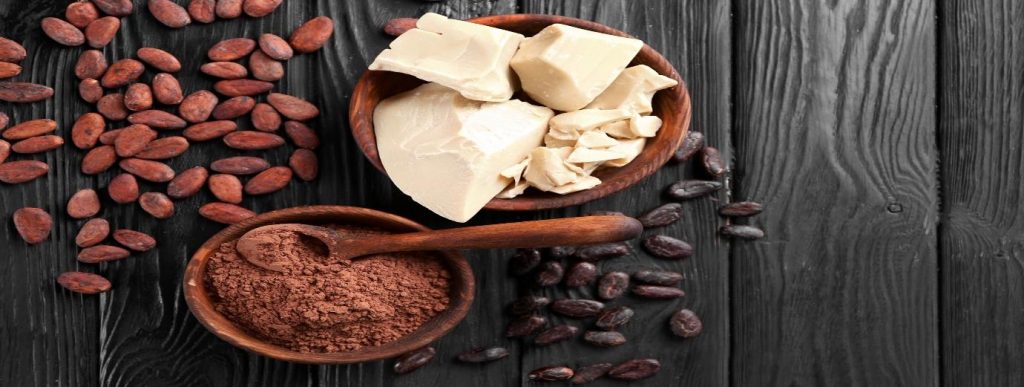
Does Chocolate Make You Fat? Chocolate as a Diet Food
Weight loss has never been so easy… as eating chocolate! When it comes to diet foods, few are more unfairly maligned than chocolate. In fact, studies show that chocolate has a surprisingly neutral effect on the body when it comes to weight loss. And you don’t have to give up your favorite chocolate treats to experience the amazing health benefits of this delicious, mood-boosting food!
The question is asked by thousands of women every day… Is Chocolate Good or Bad for You? Many experts will tell you that chocolate is bad for your weight loss goals. However, this is not necessarily true. Actually, in many cases, eating chocolate can help you achieve or maintain a healthy weight. Let’s take a look at the benefits of chocolate…
1. The Health Benefits of Chocolate
Chocolate is good for you! Many experts, such as Harvard University’s School of Public Health, are claiming that the health benefits of chocolate are numerous and profound, especially when it comes to heart disease prevention.
Chocolate contains some of the good fats and nutrients we need for good health. There are also a lot of other benefits associated with chocolate. It can be used as a form of medicine, help you relax, improve your mood, and reduce anxiety.
Not only does chocolate have a very high nutritional value, but also is loaded with nutrients like iron, magnesium, and potassium, as well as containing antioxidants. If you’re concerned about being overweight, chocolate can help keep you healthy and slim.
2. How Chocolate Contributes to Obesity
The next question to answer when you’re considering chocolate as a diet food is, does chocolate make you fat? The answer to this question depends on a few things. One of the biggest factors in your body’s response to chocolate is the amount of fat that you eat.

If you eat too much chocolate, and a lot of it is saturated fat, then yes, you could be putting on weight. However, if you eat the right kinds of chocolate and only a small amount of it, then chocolate won’t make you fat.
3. The Effects of Cacao
This is just one example of how a little science can go a long way. Cacao, otherwise known as cocoa, has many amazing health benefits. It contains flavonoids which can help prevent heart disease and stroke by fighting oxidation in the body and by dilating blood vessels.
Cocoa is also a great source of magnesium which most of us need more of (and it is especially important for women to get enough). Magnesium is essential for energy metabolism and muscle function. And lastly, cacao is a great source of tryptophan which is an essential amino acid that helps induce sleep.
4. The Effects of Cocoa Butter
Most of the research on the effects of cocoa butter on human health shows that it is very beneficial. The reason is simple. Cocoa butter is mostly saturated fat. Saturated fat is “good” fat. It has many health benefits. It is the most abundant fat in nature. It is found in foods like coconuts, avocados, fatty fish, and in high quantities in coco butter.

In fact, the human body needs some saturated fat. It helps maintain healthy cholesterol and triglyceride levels in the blood. It also aids in forming strong cell membranes and is an important component in the formation of neurotransmitters in the brain.
5. The Effects of Cocoa Beans
For those who have heard about the health benefits of cocoa beans, the effects on human health are quite promising. It’s important to understand the difference between cocoa powder and cocoa butter, however. Cocoa powder is made from processed cocoa beans. Because cocoa powder is processed, it contains theobromine.
Theobromine is a compound that, when taken in large amounts, can cause heart disease, high blood pressure, and other cardiovascular problems. When we consume cocoa butter, we consume unprocessed cocoa beans. This is the ingredient in chocolate that gives us the benefits of cocoa.
6. The Effects of Chocolate Milk
Studies suggest that chocolate milk could be just as beneficial to human health as regular milk. Chocolate milk contains more calcium, potassium and protein than regular milk, and also includes antioxidants. In addition, studies have shown that chocolate milk can lower blood pressure and the risk of type 2 diabetes.

Research suggests that eating chocolate milk may improve your memory, reduce stress, lower blood pressure, and improve concentration. This isn’t to say you should drink it daily, but if you’re feeling a little under the weather, it’s nice to know you’ve got a beverage to turn to when things get a little rough.
7. The Effects of Chocolate Chips
One study looked at the effects of chocolate chips on human health. Chocolate chips have been shown to help prevent cardiovascular diseases and diabetes and to help lower blood pressure. Chocolate chips also contain flavonoids that help prevent heart disease, the study showed. Another study found that a chocolate chip diet was more effective than a low-fat diet at reducing the body’s weight and insulin levels.
People who eat a diet rich in chocolate tend to have higher self-esteem, lower stress levels, and better relationships. If you’re wondering why you should start eating more chocolate, consider this: people who consume lots of chocolate are happier, more content, and better able to handle life’s ups and downs. The study was performed in Canada on people with and without high blood pressure.
Conclusion
Chocolate may not make you fat, but it is an important part of a healthy diet. Eating chocolate can improve your mood, help you sleep, and can be used to treat certain conditions like depression. So if you want to lose weight, you need to eat healthier foods, like fruits, vegetables, and healthy fats.
But if you don’t have those, you can try eating a chocolate bar once in a while. Or, you can try using the chocolate as a dessert instead of eating it straight from the bar. Chocolate may not make you fat, but it is still a treat that should be enjoyed in moderation.






